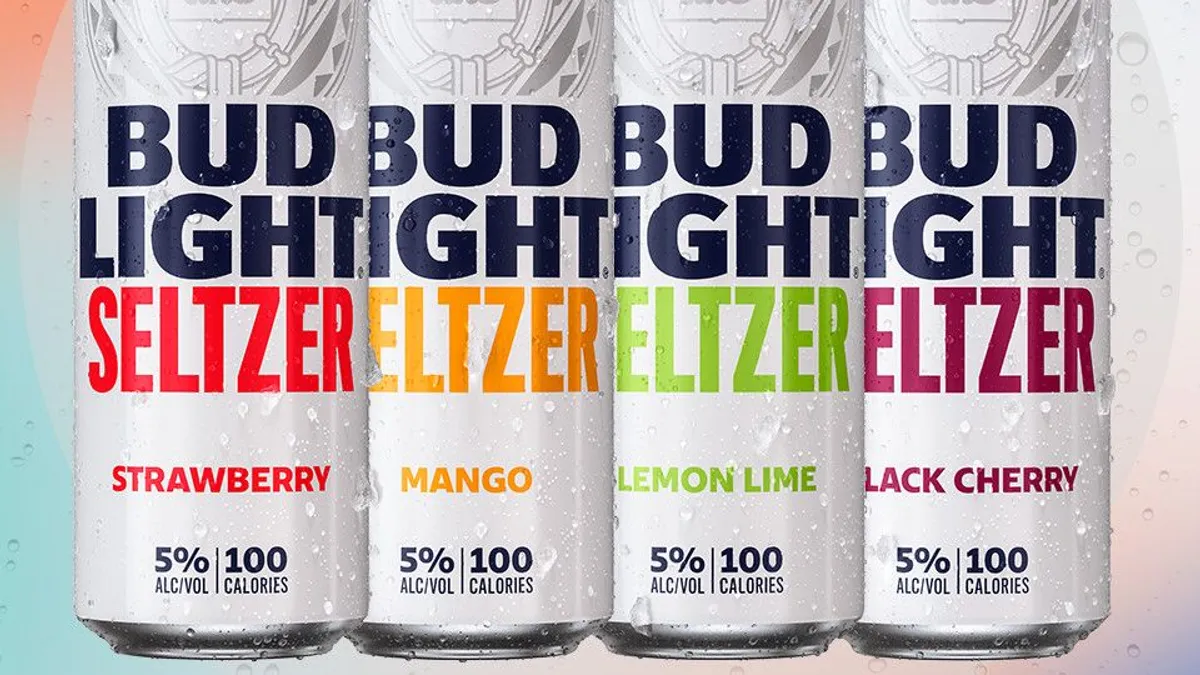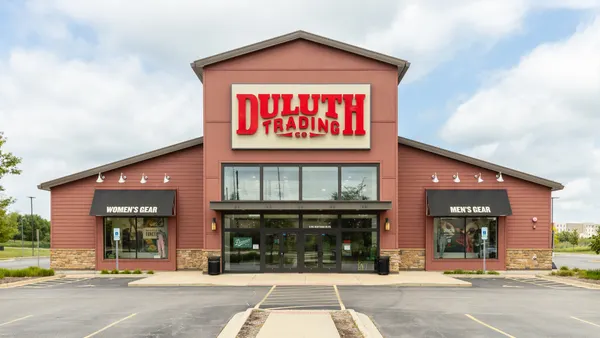Dive Brief:
- Anheuser-Busch will invest more than $1 billion in its U.S. facilities during the next two years, the company said in a statement. As part of this investment, the brewer, part of AB InBev, said it will spend close to $400 million in 2021 at its 12 major Anheuser-Busch breweries.
- Of this total, Anheuser-Busch will spend more than $50 million this year on new seltzer brewing capabilities, and more than $100 million for new lines to produce cans, which have increased in demand as people consume more at home during the pandemic. During the next two years, Anheuser-Busch said it will spend nearly $100 million on sustainability projects, including solar-panel installments and water treatment.
- The operational expansion comes as the fast-growing hard seltzer category is one of the bright spots for the beer industry, which has struggled as consumers drink less beer than previous generations, and turn to other alcoholic offerings more frequently. Nearly every major beer company with a presence in the U.S. has introduced at least one hard seltzer offering.
Dive Insight:
While Anheuser-Busch was relatively late to the hard seltzer trend, it is spending big money to increase its manufacturing operations to keep up with the competition.
It joins other major brewers upping production to keep pace with the booming hard seltzer category. Molson Coors announced last December it was increasing production capacity for seltzers and popular innovations by more than 400%. The beer giant said sales of Vizzy, Coors Seltzer, Blue Moon LightSky and other offerings continue to soar nationwide.
"As we continue to grow in [hard seltzers] and that segment continues to expand, we need to make sure we are investing in our facilities to keep up with the demand from consumers," said Cesar Vargas, Anheuser-Busch's chief external affairs officer. "We are really doubling down on investing and making sure we have the capacity to grow and lead in this exciting new seltzer segment."
Along with ensuring capacity can cover new product lines, Anheuser-Busch's capacity could see changes depending on how demand patterns shift following a recovery from the pandemic.
"I think it's too early to say ... what consumers will do in terms of how they split their occasion between in-home and out-of-home, which will have an impact on on-trade and off-trade volumes," Anheuser-Busch CEO Carlos Brito said during the company last earnings call.
In addition to the products, Anheuser-Busch plans to spend close to $100 million on sustainability projects during the next two years.
AB InBev partnered with miner Rio Tinto to deliver new sustainable aluminum cans, and it pledged that by 2025 all Budweiser beers brewed globally will use 100% renewable energy. The brewer also is curtailing water use by improving site-water runoff and water flow off the lot at its rice mill in Jonesboro, Arkansas. It also has partnered with universities to create a technology that curtails water use by up to 30%.
In 2019, Anheuser-Busch also completed its first zero-emission delivery using hydrogen-electric and electric trucks.
















